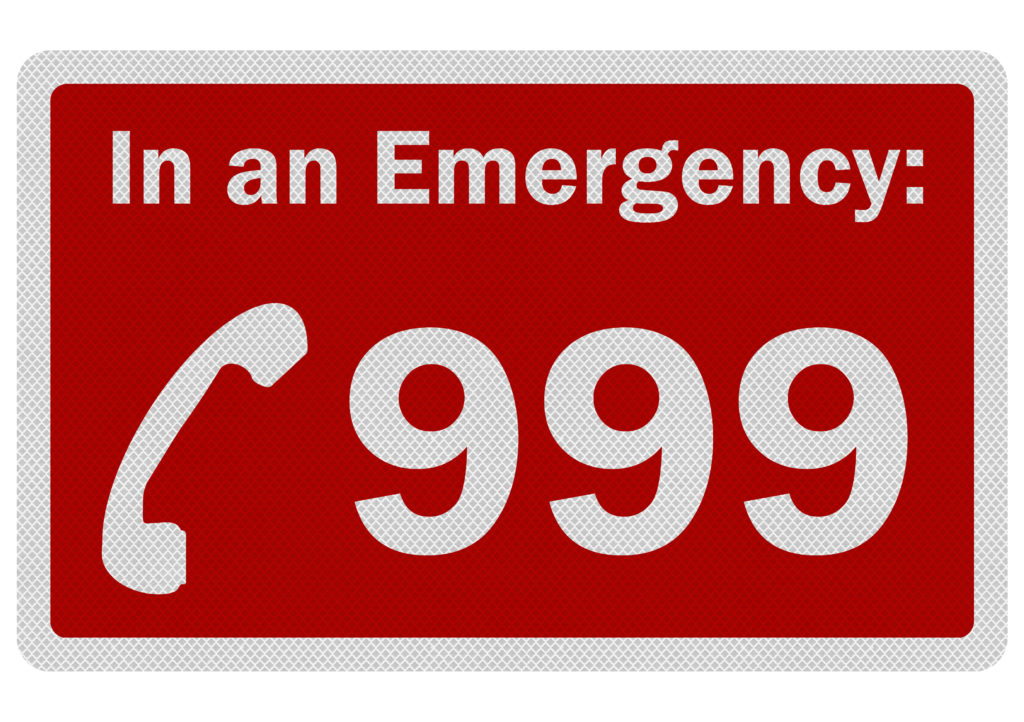Your 999 Bible: Navigating Modern '999' Scenarios And Everyday Insights
It seems like the number "999" pops up in all sorts of unexpected places, doesn't it? From a troubling voicemail about an unauthorized iPhone payment to questions about a popular cold medicine, and even discussions around self-driving cars or financial planning, this number appears in so many different contexts. For many, it can be a bit confusing, and so it's almost natural to wonder what it all means.
This article aims to be your go-to guide, a kind of "999 bible," to help you make sense of these varied situations. We'll explore the different ways this number surfaces in our daily lives, offering clarity and practical advice. You know, like how to tell a real concern from a tricky scam, or maybe even what to consider when picking out medicine.
By the time we're through, you should feel much more confident about these "999" moments. We'll touch upon everything from safeguarding your money and health to understanding some interesting facts about technology and even precious metals. It's really about giving you a clearer picture, so you can handle these situations with a bit more ease.
Table of Contents
Understanding the '999' Phenomenon
The Mystery of the $999 iPhone Payment
Decoding '999' in Health Products: The Cold Medicine Conundrum
The '999' in Modern Tech: Autonomous Driving Claims
'999' in Mathematics: A Concept Beyond Basic Division
'999' and Your Finances: Smart Investment Choices
Unpacking Investment Deductions and Wealth Building
Maximizing Savings with Tax-Deductible Investments
The Purity of '999': Understanding Silver
Distinguishing 990, 999, and 925 Silver
Frequently Asked Questions About '999'
Understanding the '999' Phenomenon
The Mystery of the $999 iPhone Payment
Imagine getting a voicemail that says you authorized a $999 payment for an iPhone you never ordered. That's a real jolt, isn't it? It instantly makes you wonder what's going on, and it's a very common way that bad actors try to trick people. This kind of message is almost always a scam, designed to make you panic and react quickly without thinking things through.
These sorts of calls often aim to get you to call back a number, which then connects you to someone pretending to be from a well-known company or even your bank. They might ask you for personal information, like your bank details or social security number, claiming they need it to "cancel" the fake order. This is where the real danger lies, as giving them that information can lead to identity theft or direct financial loss, so you know it's a big deal.
If you ever get such a message, the best thing to do is simply not respond. Do not call the number back. Instead, look up the official contact information for the company mentioned (like Apple or your credit card company) and call them directly using a number you find on their official website. They can confirm if there's any real issue. As a matter of fact, legitimate companies rarely, if ever, ask for sensitive information over the phone in this way.
You can also report these scam attempts to the appropriate authorities. In the United States, for instance, you might contact the Federal Trade Commission (FTC) or the Internet Crime Complaint Center (IC3). Sharing these experiences helps others avoid falling victim. Learn more about scam prevention on our site, which can give you some peace of mind.
Decoding '999' in Health Products: The Cold Medicine Conundrum
When you feel a cold coming on, many people reach for "999感冒灵颗粒" (999 Cold Medicine Granules). It's a very popular choice, and some customers are really quite loyal to it, almost to the exclusion of other options. Yet, there's a common question that pops up: can it be used for all types of colds, especially "wind-cold" types, even if the instructions say otherwise? This is a really interesting point, and it shows how people sometimes rely on general advice over specific product details.
The instructions on the packaging for 999 Cold Medicine Granules might indeed mention it's not for "wind-cold" colds. However, you might find different advice online, with some doctors suggesting it can still be helpful. This difference often comes down to the specific ingredients and how they target cold symptoms. For example, some ingredients might work on general cold symptoms like fever and headache, regardless of the cold's specific origin. So, it's a bit of a mixed message, isn't it?
One reason people sometimes feel sleepy after taking 999 Cold Medicine is because it often contains "马来酸氯苯那敏" (chlorphenamine maleate), which is also known as chlorpheniramine or "扑尔敏" (Puer Ming). This substance is an older type of antihistamine. It can help with runny noses and sneezing, but a common side effect is drowsiness. Whether someone feels sleepy from it really varies from person to person. Some folks feel it quite strongly, while others don't notice much at all, which is kind of interesting.
It's always a good idea to read the package insert carefully for any medicine you take. If you have specific symptoms or a particular type of cold, or if you're unsure whether a medicine is right for you, talking to a pharmacist or a doctor is always the safest bet. They can provide personalized advice based on your health situation and the exact nature of your cold. That way, you get the right help, and you know, you feel better faster.
The '999' in Modern Tech: Autonomous Driving Claims
The world of technology moves incredibly fast, and with it come new advancements like autonomous driving. But sometimes, the way these technologies are advertised can be a bit misleading. There was a recent report on CCTV13, for example, that criticized "L2.999智驾" and similar phrases for what they called deceptive advertising. This kind of marketing can suggest a level of autonomy that isn't quite there yet, leading people to believe their cars can do more than they actually can. It's really quite a concern, too.
The issue here is that if drivers rely too much on these systems, thinking they are fully self-driving, it could lead to dangerous situations. The criticism highlights that if these exaggerated claims cause an accident, the car company might have to take on some responsibility. This is a very important point for consumer safety and for setting clear expectations about what assisted driving features can actually do. We are still in a phase where human drivers must remain attentive and ready to take over, even with advanced systems in place, so that's something to remember.
Consumers need to be very aware of the actual capabilities of their vehicle's driver assistance systems. Reading the owner's manual and understanding the limitations of "Level 2" (or any level) autonomous features is crucial. These systems are designed to assist, not to replace, the driver. Companies, for their part, have a responsibility to be clear and truthful in their advertising, ensuring that their claims match the real-world performance and safety of their products. It's about building trust, you know, and keeping everyone safe on the road.
'999' in Mathematics: A Concept Beyond Basic Division
For some, the number "999" might bring to mind a mathematical concept: "0.999…≡999…/1000…" This idea often sparks a bit of debate, especially when people remember their elementary school math. The question often arises: is it just division that "clears out" or "finishes," or is there a continuous, repeating aspect? It's a rather interesting way to look at numbers, isn't it?
In higher mathematics, 0.999… (with the ellipsis indicating an infinite repetition of the 9s) is actually considered to be exactly equal to 1. This might seem counter-intuitive at first because we're used to thinking of 0.999… as being "almost 1" but not quite. However, the mathematical proof shows that the difference between 0.999… and 1 is infinitesimally small, essentially zero. This means they occupy the same point on the number line, which is pretty neat.
This concept goes beyond simple integer division, which we learn early on. While 999 divided by 1000 is indeed 0.999, the "0.999…" with the infinite repetition implies a limit. It's a way of representing a number that gets infinitely closer to 1 without ever being "less than" it in any measurable way. So, in some respects, it challenges our basic intuitions about numbers, making us think a bit more deeply about what "equal" really means in mathematics. It's actually a fundamental idea in calculus, too.
'999' and Your Finances: Smart Investment Choices
Unpacking Investment Deductions and Wealth Building
When it comes to building wealth and managing your money, understanding how taxes affect your investments is a big piece of the puzzle. The IRS, for example, allows various tax deductions for expenses that are directly related to making taxable investment income. This is a very important point for anyone looking to keep more of their hard-earned money, and it's something many people might not fully grasp.
These deductible investment expenses can include a range of costs. Think about advisory fees you pay to a financial professional who helps you manage your portfolio, or custodial fees for safekeeping your assets. Even research subscriptions that help you make informed investment decisions can sometimes be included. By carefully tracking and claiming these expenses, you have the potential to reduce the taxable portion of your portfolio's earnings, which, you know, can make a real difference over time.
Knowing what you can deduct is part of a broader strategy for tax-efficient investing. It's not just about what you earn, but also about how much of that earning you get to keep after taxes. This information often includes details on how investment income and expenses are treated for individual shareholders, especially those involved with mutual funds or other regulated investment companies, like money market funds. So, it's a bit more involved than just looking at your gains, you see.
For anyone just starting out, or even seasoned investors, getting a good grasp of these rules is key. It's one of the best ways to potentially double your wealth over the long haul: by investing smartly and making sure you're not paying more in taxes than you need to. Discovering which investments are eligible for tax deductions and understanding how to maximize those savings can be a game-changer for your financial health. And for more on tax-efficient strategies, check out this page, too.
Maximizing Savings with Tax-Deductible Investments
The idea of maximizing your savings through tax-deductible investments is incredibly appealing, and it's a goal for many people looking to grow their financial security. Beyond just general investment expenses, certain types of investments themselves can offer tax advantages. This often means you can put more money to work for you, rather than seeing a significant portion go to taxes each year. It's a clever way to approach your financial planning, honestly.
For instance, contributions to certain retirement accounts, like traditional IRAs or 401(k)s, are often tax-deductible in the year you make them. This means that money goes into your account before taxes are taken out, which can lower your taxable income for that year. The money then grows tax-deferred until retirement, which is a powerful way to compound your wealth over decades. This is a common strategy, and it's something many financial advisors talk about, too.
There are also other investment vehicles and strategies that can provide tax benefits, such as municipal bonds, which often offer tax-exempt interest income at the federal level and sometimes at the state and local levels as well. Understanding these options requires a bit of research, or perhaps a conversation with a qualified financial advisor who can help you tailor a plan to your specific situation. They can help you figure out what works best for your money goals, you know.
The key is to look at your entire financial picture and figure out where you can best use these deductions. It's not just about finding any deductible expense, but about aligning those deductions with your overall investment goals and risk tolerance. A comprehensive guide to taxing investment income, deductible expenses, and reporting gains and losses can be a really valuable resource for anyone wanting to get serious about this. You can find general information on tax laws and investment income from reliable sources, like the IRS website, which is a very good place to start your research: irs.gov/tax-guidance.
The Purity of '999': Understanding Silver
Distinguishing 990, 999, and 925 Silver
When you're looking at silver items, you often see numbers like "990," "999," or "925" stamped on them. These numbers tell you about the purity of the silver, which is really quite important for understanding its value and how it might be used. They all refer to what we call "pure silver," but there are subtle differences that matter a great deal, especially if you're buying jewelry or other silver goods.
"999 silver" means the item is 99.9% pure silver, with just a tiny fraction of other metals. This is considered "fine silver" or "pure silver." "990 silver" is 99.0% pure, and "925 silver" (often called sterling silver) is 92.5% pure silver, with the remaining 7.5% usually being copper. The reason for adding other metals, like copper, is that pure silver is very soft. Adding a bit of copper makes the silver much more durable and suitable for everyday items like jewelry, so that's why it's done.
The concept of "足银" (zu yin), or "foot silver," refers to silver content that is very close to 100%. In theory, 100% pure metal silver only exists as an ideal, because silver is quite reactive and can easily combine with sulfur in the air, causing it to tarnish. To extract high-purity white silver, the raw material needs to be heated to nearly a thousand degrees Celsius. This process is complex and requires special equipment, which is why it's not something you can just do at home, you know.
Understanding these purity levels helps you make informed choices, whether you're buying a piece of jewelry, a coin, or even industrial silver. Higher purity silver is often preferred for investments or for items where softness isn't an issue, like bullion. For items that need to withstand daily wear and tear, like rings or bracelets, sterling silver (925) is usually the preferred choice because of its added strength. So, it's really about picking the right type of silver for its intended purpose, too.
Frequently Asked Questions About '999'
Is a $999 iPhone payment always a scam?
In almost all cases, yes, a voicemail or unexpected message about an unauthorized $999 iPhone payment is a scam. Legitimate companies typically do not notify customers of such large, unexpected charges via voicemail and ask them to call back an unknown number. It's designed to create panic and get you to give away personal details. Always verify directly with the company using their official contact information.
Can 999 cold medicine be used for all types of colds?
While 999感冒灵颗粒 (999 Cold Medicine Granules) is widely used for general cold symptoms, its packaging often states it's not specifically for "wind-cold" type colds in traditional Chinese medicine. However, its active ingredients can help with common cold symptoms like fever and headache, regardless of the cold's specific classification. If you're unsure or have specific symptoms, it's best to consult a healthcare professional for personalized advice, you know, just to be safe.
What does "999" mean in financial or investment contexts?
In financial and investment discussions, "999" often refers to the concept of purity in precious metals like silver (99.9% pure silver

999 Angel Number Meaning: It's Time Share Your Knowledge And Talents

When To Call 999 | Use the Right Service

Download Juice WRLD Logo 999 Forever Wallpaper | Wallpapers.com